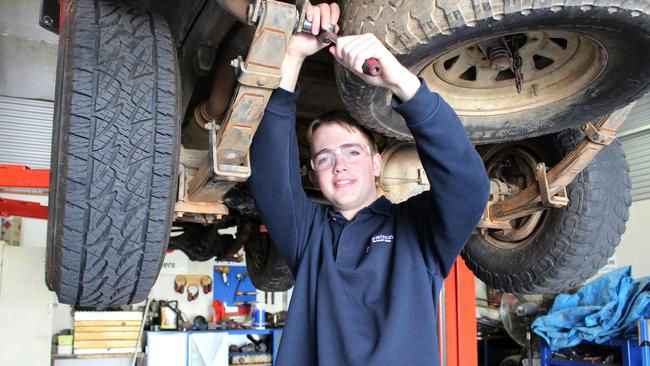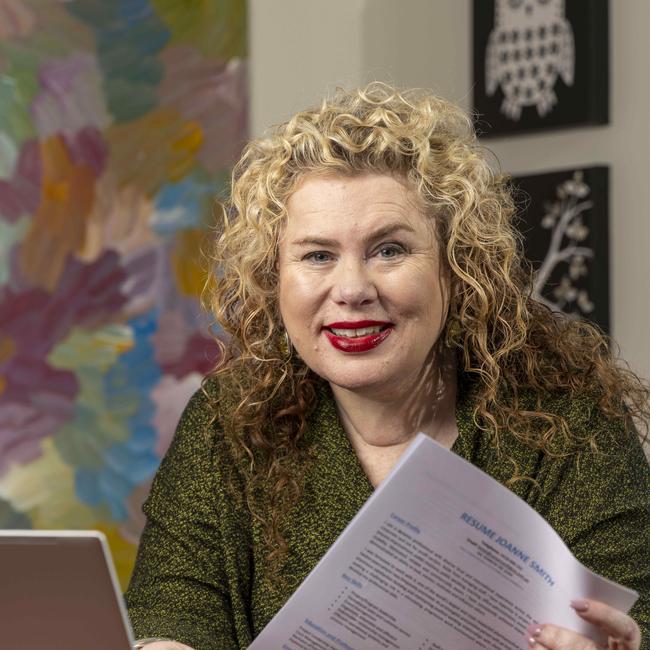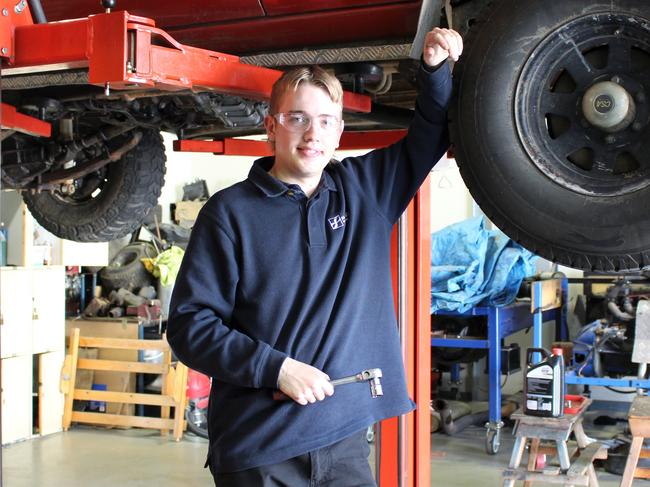Alternative options for kids who don’t want to finish high school
It can be hard to force your child to go to school if they hate it, but there are other pathways available to ensure they get a good start to life without being miserable.

Careers
Don't miss out on the headlines from Careers. Followed categories will be added to My News.
The beginning of a new school year is exciting for many, but some students are just counting down the days until it is over.
Although finishing Year 12 is linked to significantly better job outcomes, experts say traditional schooling options are not the only way for young people to get ahead.
There are many pathways to gaining a Year 12 – or equivalent – qualification and students disengaged with their learning are urged to consider the alternatives.
“Where possible, the longer you can keep kids in education, the better,” Career Confident director Helen Green says.
“But engaging with the young person, and having them feel they have some control over their learning, is really important.
“Students who feel happy about their learning, and are learning in a way they prefer for at least part of the time, will do better.”
Federal Government figures show about 16 per cent of Australian high school students drop out of school before finishing Year 12, putting them at risk of unemployment or a lifetime of low-paid work.
While the overall unemployment rate in Australia sits at 4.3 per cent, latest Labour Force figures from Australian Bureau of Statistics reveal this jumps to 7.1 per cent for people who finished their education after Year 11 and to 8.5 per cent for those who finished after Year 10.

Green says students who prefer a hands-on, practical style of learning could benefit from undertaking vocational study at school – including school-based apprenticeships and traineeships – or abandoning school altogether to study at TAFE or a private registered training organisation (RTO) instead.
A pass in Year 10 is typically the only entry requirement to study a certificate III qualification, which is generally considered the vocational equivalent to completing Year 12.
There are no entry requirements for certificate I courses and graduates can then progress through the qualification framework to a Bachelor degree and beyond.
Green says the option to graduate from high school without an ATAR (Australian Tertiary Admission Rank) is becoming increasingly popular and may prevent students dropping out because of anxiety over senior school exams.
While school leavers may not be able to progress directly to university without an ATAR, she says pathway courses are often possible.
St Patrick’s Technical College principal Danny Deptula says disengaged students could benefit from enrolling at a different school, where they can make a fresh start and leave behind previous reputations for playing up.
Specialist senior schools, which often have flexible timetables and relaxed uniform requirements, have been particularly successful for disengaged young people, given their ability to operate in a more adult environment.
Deptula says more focused teaching methods may also help, noting some students become disengaged at school because they cannot “see the point” to their learning.
“Mainstream schools are good at teaching those kids that are academic but that’s only a third of all kids – two thirds of them are not academic,” Deptula says.
“Give (those non-academic students) the right environment and give them the right support and they can be very successful.”

At St Patrick’s, maths, English and science classes are designed specifically for those wanting to work in the trades industry.
Students also undertake seven weeks of work experience a year to understand how their learning can be applied in the workforce.
“If you’re teaching maths to kids doing Year 11 construction, then you can make the maths all about construction by looking at roofing angles and all that sort of stuff,” Deptula says.
“English can be about writing resumes or, for auto kids (those interested in automotive trades), read an auto magazine and get them to decipher that instead of a (traditional) English text.”
Nash Sanderson moved to St Patrick’s Technical College last year after becoming disengaged at his previous school and now has his sights on becoming a diesel mechanic.
“I was going to drop out of my old school and just do some earthmoving but now I’m definitely moving towards getting into my dream job working on trucks,” says Sanderson, who will start Year 11 studies this year.
“I’m finding (since moving schools) that my grades have improved a bit – even in the subjects I don’t want to do, I’ve been more motivated to do well.”




